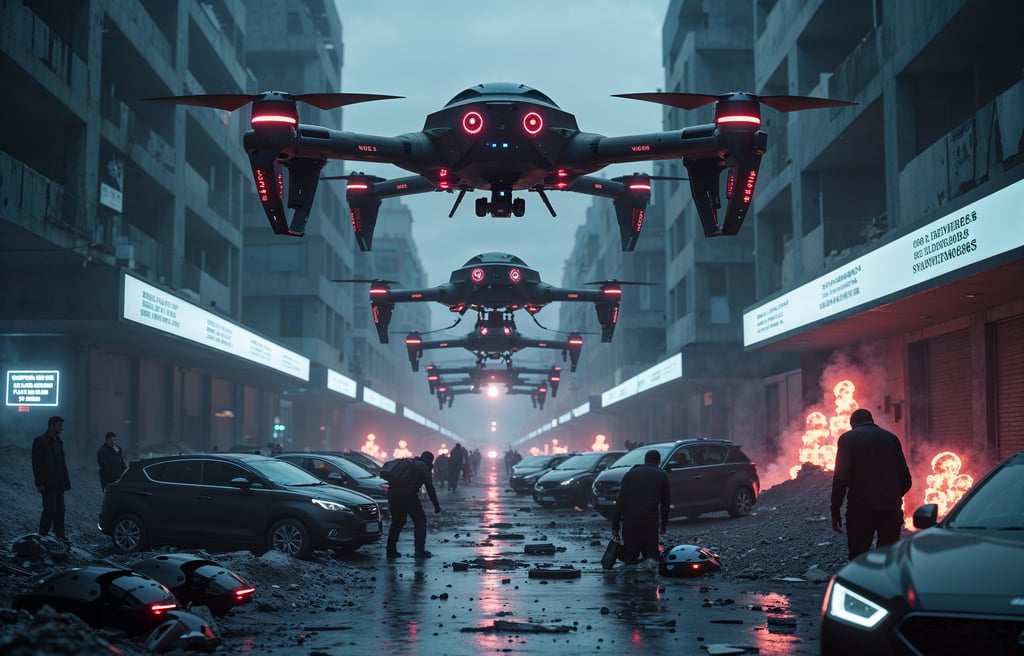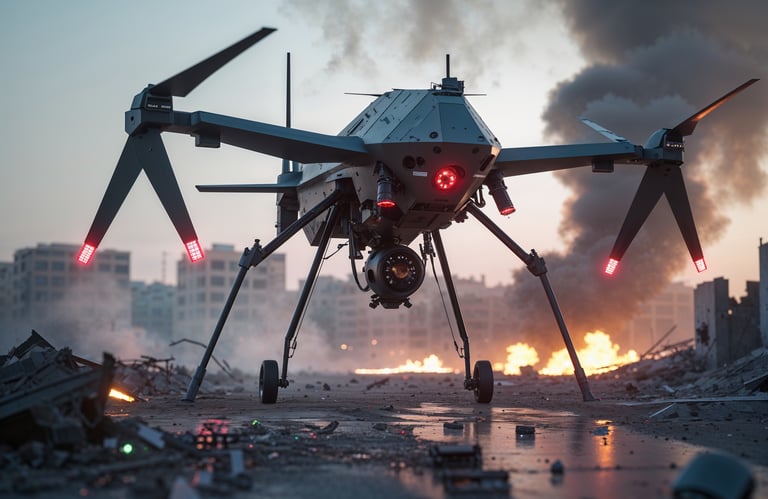The Silent Rise of AI Weapons: Why the World is Saying “Stop Killer Robots”
Discover the global movement “Stop Killer Robots,” and why experts and activists warn against autonomous weapons powered by artificial intelligence. Learn what’s at stake and how governments are reacting.
Alexander Hart
4/6/20253 min read


Introduction
Artificial Intelligence is shaping our world in remarkable ways. From healthcare to education, its benefits are transforming lives. But not all progress comes without risk. One of the most alarming developments today is the use of AI in weapons systems machines that can make life-or-death decisions on their own.
This has led to a powerful international movement known as Stop Killer Robots. It’s not science fiction. It’s real, it’s happening, and it could change warfare and society forever.
What Are “Killer Robots”?
So-called “killer robots” are lethal autonomous weapons systems (LAWS). These are machines, like drones or gun-mounted robots, that can operate without direct human control. In other words, they can identify, target, and kill people without a human pulling the trigger.
These systems are not just under development some are already in use. The idea of handing machines the power to decide who lives or dies raises deep ethical and legal questions.


A Real-World Example: The Kargu-2 Incident in Libya
One of the most discussed and controversial cases happened in March 2020, during the civil conflict in Libya. According to a United Nations report, a Turkish-made autonomous drone, the STM Kargu-2, may have engaged and killed human targets without receiving direct commands from a human operator.
The drone was reportedly deployed by government forces and used facial recognition technology and machine learning algorithms to track down retreating fighters. The report described the system as acting in a "highly effective autonomous mode," raising the possibility that lethal decisions were made by the drone itself.
While the exact details remain unclear and debated, this incident is often cited as the first known case of an autonomous weapon being used to kill, setting off alarm bells in both the military and human rights communities.
Source: United Nations Security Council Panel of Experts on Libya (2021 Report)
This case underscores the urgency of regulating such technologies before they become widely accepted tools of war.
What Are Governments Doing About It?
There is currently no international law specifically banning autonomous weapons. However, discussions are ongoing at the United Nations.
Some countries, like Austria and Brazil, support a legal ban. Others, including the United States, Russia, and China, oppose restrictions, arguing that regulation could limit technological progress or national security advantages.
In 2023, the European Parliament called for strict controls on AI in military use, signaling a growing concern from democratic institutions.
According to a Human Rights Watch report, “meaningful human control” must remain a standard in all decisions involving life and death.
Source: Human Rights Watch
The Core Risks of Autonomous Weapons
1. Misidentification: AI may misclassify civilians as threats, especially in crowded or complex environments.
2. No accountability: Who is responsible when a machine makes a deadly mistake?
3. Global instability: Autonomous weapons could spread quickly and be used by authoritarian regimes or non-state actors.
Experts warn that the proliferation of AI weapons could lead to unintended consequences far beyond the battlefield — including use in policing, surveillance, and internal control.
A Call for Global Regulation
The Stop Killer Robots campaign is pushing for:
A legally binding international treaty.
Clear limits on how AI can be used in warfare.
The involvement of civil society in shaping AI policy.
They’re not alone. Tech leaders like Elon Musk and the late Stephen Hawking also warned about the dangers of uncontrolled AI in military systems.
"Autonomous weapons are a Pandora’s box that we may not be able to close." — Campaign representative at the UN
Source: United Nations Office for Disarmament Affairs
Conclusion
AI offers powerful tools for progress, but its use in warfare poses serious moral and security threats. The Stop Killer Robots movement is sounding an alarm we cannot ignore.
Whether governments listen — and act — may shape the future of war, peace, and human dignity.


Insights
Stay updated on AI news and trends today.
Learn
© 2025. All rights reserved.
